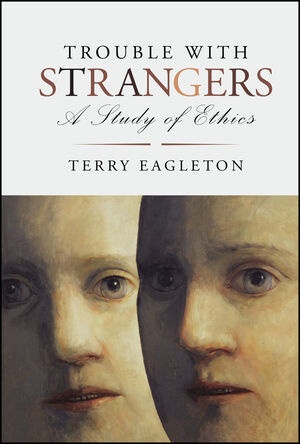Trouble with Strangers: A Study of EthicsISBN: 978-1-4051-8573-8
Hardcover
360 pages
October 2008, Wiley-Blackwell
 Other Available Formats: Paperback
|
||||||
“Readers who know the writers being discussed will enjoy the book.” (Choice, April 2009)
"Eagleton has laboured diligently in tracing the wellsprings of ethics across literature, philosophy, morality and religion. Trouble With Strangers is an engrossing book, peppered with remarkable insights into theory, philosophy and psychoanalysis." (Australian Book Review, March 2009)
"Eagleton is absolutely correct to ask why do we have ‘trouble with strangers?’ It is to ask, after all, how we might be able to recreate solidarity. And it is in pursuit of this answer that he examines the attempts of moral philosophers to give altruism a firm footing." (Culture Wars, March 2009)
“This difficult, highly abstract, yet extremely closely reasoned study touches on so many topics and ideas that the reader may come away from it wondering whether Eagleton has made a convincing argument for his main thesis which is that most ethical theories can be assigned to one of Jacques Lacans three psychoanalytical categories of the imaginary the symbolic and the Real or in some combination of the three.” (Library Journal, December 2008)
"Confronted now with Eagleton's eighth book in 11 years … One finds his trademark qualities in abundance: impishness, prodigious breadth of reading, a poacher's disregard of boundaries and of 'no trespassing' notices, sublime self-confidence, and an opening up of the heart to old allegiances as sudden as a blow to the chest." (Times Higher Education Supplement, December 2008)
"Written in Eagleton's very readable, clear and witty style, this book may achieve the unthinkable: bridging the gap between academic High Thought and popular philosophy manuals."–Slavoj Žižek
"… An engagement with the whole modern European tradition
of thought about ethics, drawing on both philosophical and literary
texts, and paying close attention to shifting cultural currents and
historical contexts. The insights are often sharp, and the
criticisms both pointed and – usually – laced with
humour"
–Peter Dews, University of Essex
"This is a fine book. It is hugely ambitious in its scope,
develops an original thesis to illuminating effect and is written
with a compelling passion and commitment"
–Peter R. Sedgwick, Cardiff University
"Written with Eagleton's usual wit, panache and uncanny ability
to summarise and criticize otherwise complex philosophical
positions ... this is an important book by a hugely important
voice"
–Simon Critchley, The New School for Social
Research



